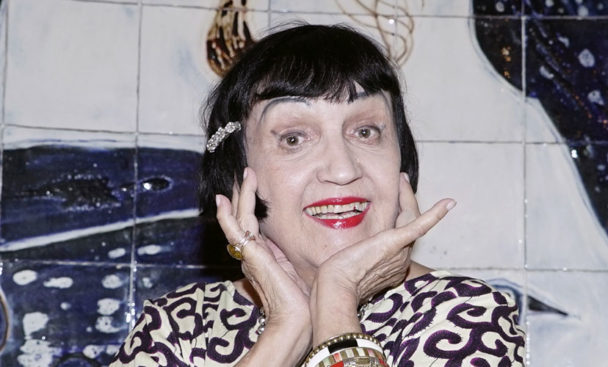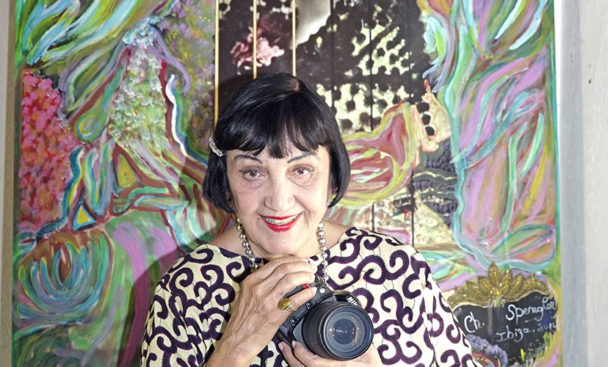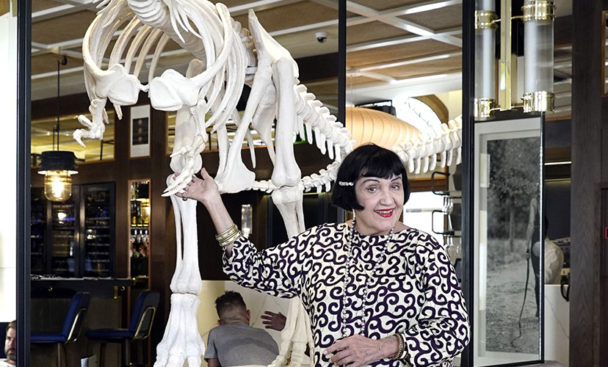French by birth, although she grew up in Madrid, and has loved Ibiza since she was a child, Christine Spengler is a self-taught photographer and writer who, at the age of 23 discovered her vocation in life and determined that she would travel the world photographing war zones and defending the oppressed. Today her work is admired throughout the world, and a prize-winning documentary film has been made about her life, gaining an award at the Malaga film festival among others, and there have been several exhibitions of her work.
According to the artist, who is an island resident, her story began in 1970 when she set off with her younger brother Eric, on a “journey to the ends of the earth, maybe never to return”. A revealing adventure, which began in Chad, where Christine picked up Eric’s camera for the first time, to get a shot of “two Toubou fighters, armed to the teeth and heading into battle hand in hand” she says. The photographer goes on to explain how at that same time “I discovered my poetic and hopeful vision in the drama of war”. Thus, began this woman’s dedication to capturing the most human and ephemeral moments of war.
With the Nikon round her neck as her sole companion and dressed in a black tunic with a cloak covering her face, Christine has worked in Chad, Iran, Afghanistan, Vietnam and Northern Ireland, to name just a few conflict zones. We ask her if it was difficult being a woman in those kinds of scenario and in those times, among unfamiliar cultures and in wartime, and she reveals that “on the contrary, it always worked in my favour, because as women we have a special sensitivity; I always tried to empathise with the women who were victims and they would ask me to photograph them and tell the world what was happening to them”.
Christine recalls how she has been a “witness to appalling dramas and tragedies and seen horrors and terrifying scenes as a war correspondent for media agencies such as Sipa-Press, Corbis-Sygma and AP”. There are some episodes which have continued to haunt her dreams until relatively recently, when she finally recovered peace and colour in her photographs, examples of which can be seen in her new exhibition ‘Ibiza, la serenidad recobrada’ (Ibiza, tranquillity recovered), from 9 to 19 August at the Club Diario in Ibiza.
In creating the works in this exhibition, which are worlds away from her war photographs, Christine is grateful for “having found peace again”. “Thanks to this island, its changing light, its powerful goddess Tanit, the beauty of the almond blossom, its peasant women dressed in black with their dainty espardenyes, the peculiar fragrance emanating from the fields of carob trees, and above all, the rock of Es Vedrà, all have helped me forget the harrowing odour of gunpowder and I have been able to create this exhibition which the public will find surprising”, she says.
We also ask her about director Xavi Herrera’s documentary Moonface, which was subsidised by the Consell d’Eivissa, and which reveals the fascinating life that Christine has led and her professional career as told by herself in voice off. She tells us how “I thought it was a great idea from the start, and Xavi has not left out a single detail”. Christine wants to underline the fact that “I am the only survivor of my generation, and this project has also been a homage to all those brave women who were unable to describe what they had been through and why they died” and she adds “ my favourite part of the documentary is when I secretly confess to Xavi, how I continue to enjoy danger, and I realise that I will always live my life between light and darkness”.
Finally, Christine wants to send a message to all those contemplating the possibility of taking that journey to the ends of the earth, just as she did, warning them that “today there is an added danger in that now a war correspondent is a target for armed forces, today’s journalists reporting on current conflicts are often kidnapped and murdered simply because of their profession”. She ends by reflecting that “Just the fact of deciding to go makes them real heroes, and my only advice would be that they should be independent and should not be frightened in the field”.


